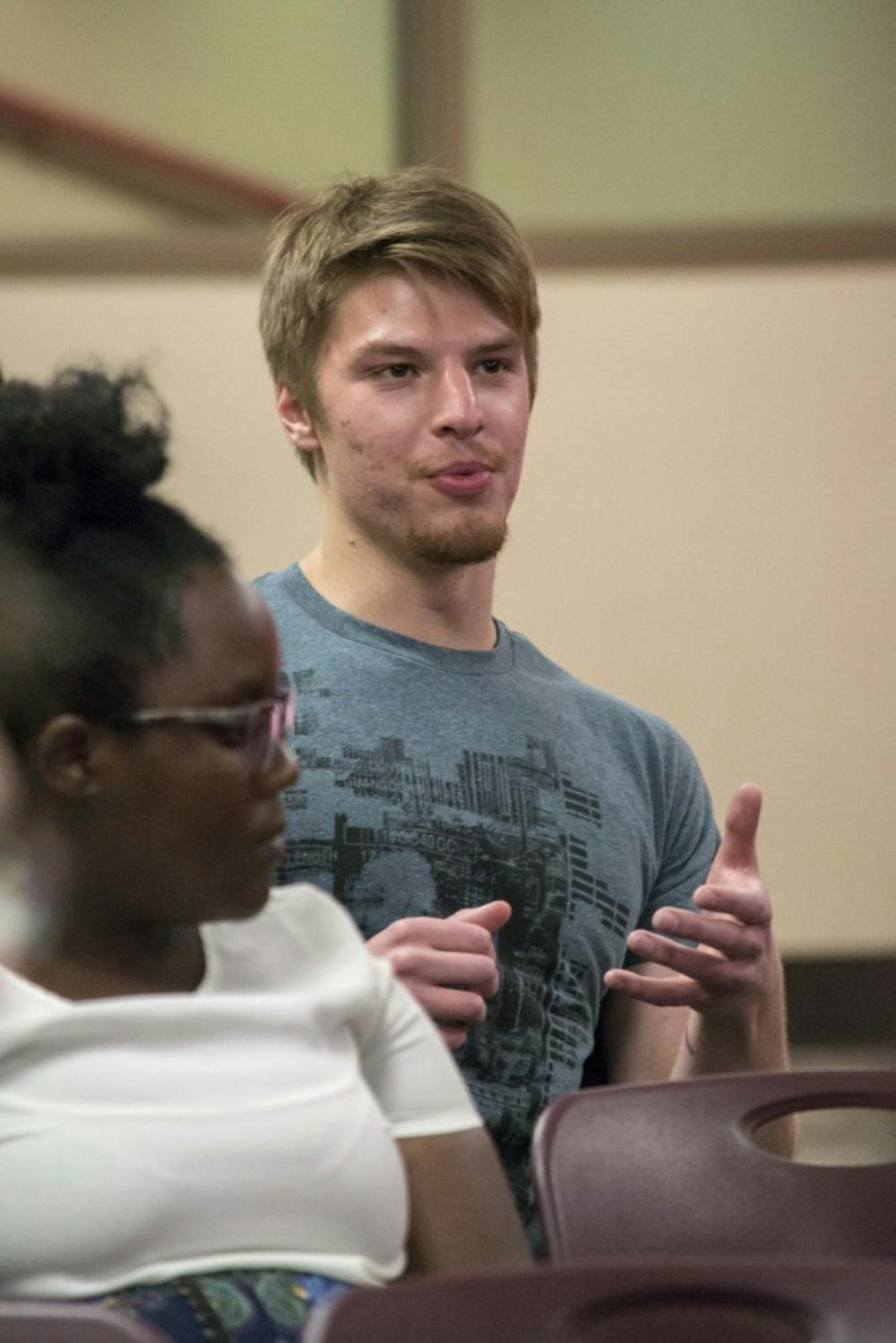Indiana State Representative Christina Hale was slated to speak at the event, but could not attend. Instead, the event started with a video showing the history of immigration in the United States, followed by an open discussion.
Much of the discussion focused on the idea of the “American Dream” and what it really means to be an immigrant in the U.S. Manuela Amegan, a junior international business and human resources major who immigrated to America from West Africa, said immigrating has given her opportunities she wouldn't have had in her home country.
“It’s important to note that America is the land of opportunity to everyone else,” Amegan said. “When I came here, I worked hard to know that when I go back to my country, I can show them what I did.”
Presidential hopeful Donald Trump has proposed changes to the United State’s immigration policies. According to his website, Trump wants to end birth-right citizenship, build a wall at the America-Mexico border and punish visa violations more harshly. Amegan said while Trump has the right to say his opinion, there is no true definition for who an American is.
“Sometimes I applaud [Trump] for having the courage to say what others won’t,” Amegan said. “But we [immigrants] are American too. [Being an American] is not just because you’re born here anymore.”
Some participants in the discussion said the immigration system needs to be fixed, but to help rather than hinder immigrants entering the country. Kirsis Dipre, a senior psychology major and vice president of the LSU, moved to the U.S. from the Dominican Republic when she was 10. She had relatives in New Jersey who helped her with the immigration process, but said many immigrants don’t have that advantage.
“If you don’t know what you’re doing, you will be lost. I love this country, but I do think there are so many flaws in the system,” Dipre said. “Maybe if we fix the system it could influence and reduce the amount of illegal immigrants we have.”
Malik Hurt, a junior political science and economics major, said the immigration system isn’t just broken, but fundamentally flawed. He said the immigration system needs a complete overhaul.
“It was purposely designed to be xenophobic,” Hurt said. “We need an entirely new system altogether, designed for everyone, really.”
Other students noted the focus on illegal immigrants from Mexico, with immigrants from other countries largely being ignored. Pearl Tandoh, a senior hospitality and food management major, said illegal immigrants aren’t only from Mexico.
“I know there’s a lot more to it,” said Pearl Tandoh, a senior hospitality and food management major. “There is more than one type of immigrant that’s illegal.”
Dipre said being an immigrant is harder than people think, and losing one’s culture is a large part of that. She said it’s hard to leave behind a home country and promise to belong to another.
“It’s terrifying to know that when you become a citizen, you pledge allegiance to America,” Dipre said. “You have to make some sacrifices to achieve that American dream. That’s something people don’t see, and don’t understand.”





